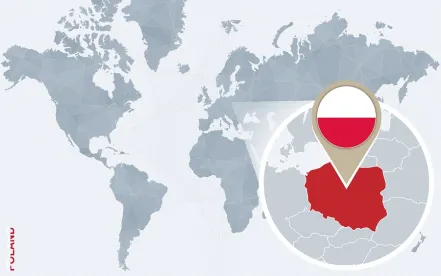During a webinar organized by Polityka Insight on April 15, 2020, the Polish Competition Protection Authority (UOKiK) Chair, Mr. Tomasz Chróstny, stressed that UOKiK will now pay particular attention to counteracting payment delays, relying on the powers vested in it by the Act of March 8, 2013 on Counteracting Excessive Delays in Commercial Transactions (formerly the Act on Payment Terms in Commercial Transactions) (the Act).
Amid the coronavirus disease 2019 (COVID-19) epidemic, providing the locked-down economy with sufficient liquidity to counteract the consequences of the halt is among the Polish government’s prime objectives. The government, through state-controlled companies, made available a plethora of loans and other instruments to secure liquidity.
The UOKiK chair emphasized that enterprises receiving government support in the form of liquidity may not be allowed to use such liquidity to secure their position while defaulting on payments to their creditors and, thus, driving such creditors into financial distress.
Thus, UOKiK will cooperate with the National Revenue Administration and other bodies providing liquidity assistance in ascertaining that such assistance is properly utilized through counteracting late payments.
Since January 1, 2020, UOKiK has had the power to investigate and penalize, ex officio, certain material breaches of the Act. The Act incorporates the EU Late Payments Directive of 2011 into the Polish legal system, as well as implements certain Polish solutions and aims to counteract payment gridlocks, which have long plagued the Polish economy. Since the outbreak of the COVID-19 epidemic, many enterprises either have ceased paying their creditors or have materially delayed payments to save cash for “a rainy day” or to finance themselves using the creditors’ money. Such behavior threatens to render numerous creditors insolvent and jeopardize the entire Polish economy.
According to the Act, if a debtor’s payment delay in a commercial transaction exceeds 30 days (if the payment date has not been specified in the transaction agreement) or the payment date provided for in the parties’ agreement has been missed (such payment period may not exceed 30 or 60 days), the debtor shall pay the creditor the penalty interest set forth in the Act (which is higher than the late payment interest under the Civil Code). The provisions of the Act apply to commercial transactions (i.e., all goods supply or services transactions connected with commercial activity) and to all debtors (with exceptions for certain entities defined in the Public Procurement Law). The creditor may not only claim penalty interest on late payments, but may also request compensation connected with collection (in the amount defined in the Act, payable on top of the court fees connected with collection).
Since January 1, 2020, the Act has also obliged certain entrepreneurs to report to the National Revenue Administration regarding the payment terms applied by such entrepreneur.
Since the application of the Act did not seem to sufficiently counteract late payments, UOKiK was granted powers to investigate and penalize certain breaches provided for in the Act, namely excessive delays in payments (excessive delay meaning a situation where during three consecutive months, the total amount of unpaid or delayed payments exceeds PLN2 million). During the proceedings, UOKiK may audit, review books and documents, request information and access IT systems from parties that are not subject to the proceedings. If it transpires in the course of the proceedings that the enterprise subject to the proceedings committed a breach, being the excessive delay in payment, UOKiK may impose a financial penalty comprising the total of the penalty interest that would have been accrued on the delayed payments under the Act. Such penalty is to be paid on top of the penalty interest.
The decision on commencing the proceedings and imposing the penalty announced by UOKiK is available on its website.
The Polish version of this article is also available to view online: WERSJA POLSKA




 />i
/>i

